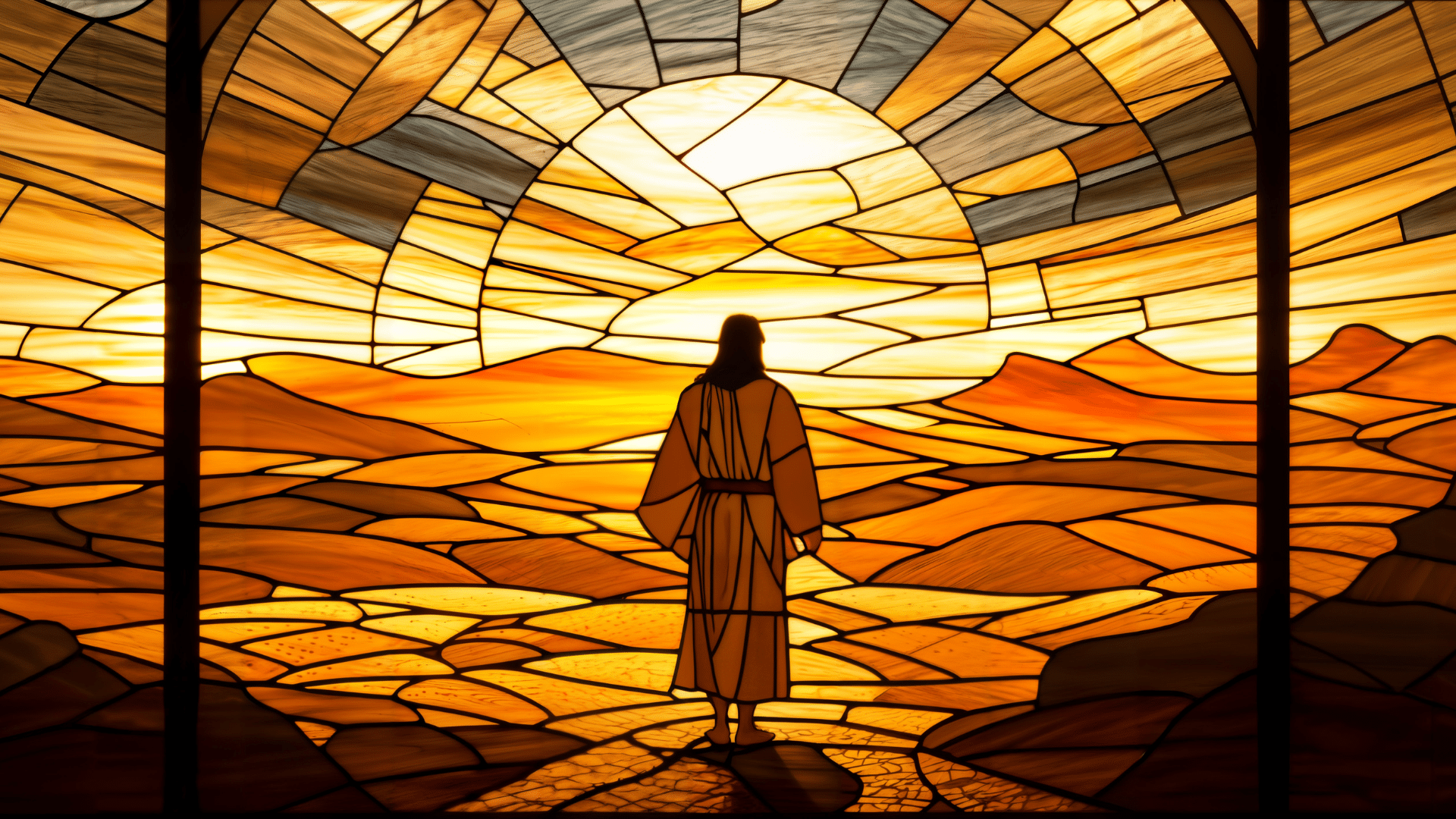How To Avoid Idolatry: Become A Trinitarian

In last week’s post I began to reflect on my debate with Musharraf Hussein.
I made the point that unitarianism (the belief that God’s one-ness is a mathematical singularity) is not obvious. In fact it involves you in the very thing unitarians wish to avoid: idolatry. Either it makes you posit a lifeless, mute, dark God or a needy God or both (read here for those two arguments).
In this post I want to present a third argument for why unitarianism leads to idolatry. It’s all about Jesus.
In our debate, Musharraf claimed that the 4th century council of Nicaea was the place where the Trinity was invented. Or at least Nicaea was where the doctrine was thrust upon the church by Constantine and his romanising influence. Historically this is nonsense. The first three centuries of the New Testament church were thoroughly Trinitarian already. And besides, the whole point of the debate was to say that there wasn’t only three centuries of proto-Nicene theology prior to the council. Actually there were millennia of proto-Nicene theology – from Genesis onwards!
So Nicaea was not an alien development thrust on God’s people. (For more, listen to the debate). Here though I want to raise something else about Nicaea – something I touched on early in our conversation. The problem for the Muslim is that no-one at Nicaea represents anything like the Muslim position. Not Arius, no-one. And no non-Trinitarian Christian prior to Nicaea said anything about doctrine of God that would be remotely acceptable to a Muslim – not the docetics, not the adoptionists, not the Ebionites. No-one who had a ounce of regard for the New Testament or the person of Christ could have a Muslim doctrine of God. Why? Because Jesus.
Even if you were a heretic who conceived of Jesus as a man adopted into the life of God as his Son, you had a far more exalted Jesus than Islam could ever accommodate. And the Jesus that Arius represented at Nicaea was even more exalted than that. Arius claimed:
We know one God – alone unbegotten, alone everlasting, alone without beginning… who begot an only-begotten Son before eternal times, through whom he made the ages and everything.
Here we have an only-begotten Son who is older than the universe and is the mediator of all creation. Remember Arius reliedon passages like Proverbs 8 concerning Wisdom (which everyone at Nicaea agreed referred to the Son). Arius therefore said that, obviously, the Son is a partner with the LORD and works together with him as his Craftsman. From both Old and New Testaments you can’t get around it, there’s something divine about Christ. For Arius he is emphatically a lesser deity. But nonetheless he made the world and is in some sense divine.
That’s the Arian Jesus. That is emphatically not the Muslim Jesus. And it could not be the Muslim Jesus because of the Muslim doctrine of God. For anything like Islam to get off the ground whilst also holding onto Jesus, the history of religions would have to wait a long time. We would have to wait until the biblical Jesus was forgotten. We would have to wait 700 years and move 700 miles south into the desert. There would need to be another book essentially supplanting the Bible – a book which mixes in apocryphal gospels and Talmudic material. This new religion would have to dilute and dilute and dilute the biblical Christ until there was virtually nothing left. Then Islam could accommodate Jesus.
Of course even this Quranic, 1-part-in-1000-diluted-Jesus is still pretty cool. He’s still born of a virgin for goodness sakes. He does incredible miracles. He will judge the world. But over half a millennium after he lived, and with a major rebrand as ‘Isa’, Muhammad just about manages to de-God Jesus. Enough to make him palatable for unitarian consumption anyway. Just about.
(By the way this is the opposite of the mythology that imagines Jesus to have become increasingly deified in the popular imagination as the centuries progressed. In fact the trajectory runs in the other direction. It’s the earliest preaching, creeds, hymns and gospels that speak in the most exalted terms about his deity. People have to forget Jesus and ignore the earliest, most trustworthy sources (the New Testament) in order to make him just a prophet. Those who deal with him up close and personal recognise the enormity of his divine person).
So then, back to Nicaea. There are 318 bishops. 316 of them are against Arius. Now imagine you put a Muslim in a time machine and place them at the council. Whose side should they prefer?
You might imagine that they would prefer Arius. After all it’s Arius who has a doctrine of God that sounds closer to tawhid (the Islamic doctrine of God’s oneness). Remember what Arius said. God is “alone unbegotten, alone everlasting, alone without beginning.” That word “alone” sounds pretty Islamic.
But careful now. Because if our time-travelling Muslim chooses the Arian side, what has he done? He has actually multiplied divine beings. Arius thought of Christ as a divine being subordinate to the Most High. He had to because the biblical material would not let him think any less of the Son. But then, this is the dilemma for any who face up to the Scriptural Christ: Does this divine Son exist within the one divine being of God, or outside? Arius said outside. And so he committed shirk. “Shirk” is the foulest sin in Islam – it means associating partners with God. But that’s what Arius does. Arius is forced to see Christ as another divine being who partners with God in all his work. This is of course completely unacceptable to Muslims. But – here’s the point – it’s completely unacceptable to Christians too.
This is why Arius was condemned. The orthodox bishops at Nicaea were adamant that there are not multiple divine beings. There is only one God. The Son is not a second, lesser deity who the Almighty uses in creation and redemption. The Son is “of one being with the Father” as the creed says. The ‘partnership’ of Father and Son is not of two beings. Christians are revulsed by the thought, just as Muslims are. But the fact remains, the Scriptures speak of some kind of ‘partnership.’ The LORD creates through his Wisdom, the Most High reveals himself through his Sent One, the Ancient of Days rules through his Son of Man. You cannot get around this if you’re at all honest in your reading of the Bible. But Nicaea is insisting that what we see in this union is not the interaction of two deities – a greater and a lesser one. Blasphemy! Orthodox Christians have always condemned Arianism because it multiplies gods. Heresy! No, God is one. The doctrine of the Trinity insists on it. The doctrine of the Trinity upholds it. Therefore a Nicene reading of Scripture is the one that is true to monotheism. When a Nicene theologian reads these Scriptures about the Ancient of Days and his Son of Man, she sees a Father-Son union that is the very essence of God’s unbreakable oneness. It’s the doctrine of the Trinity that keeps us from shirk.
So this is the choice you must make. Once you take Jesus seriously – once you take him Scripturally – you must either become Trinitarian, seeing him as internal to the unique and unified divine identity, or you must put him outside that identity. If you do the latter, you make for yourself another god.
It’s Trinity or idolatry. It always has been.
